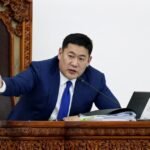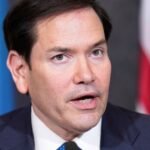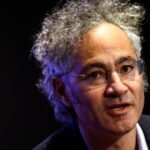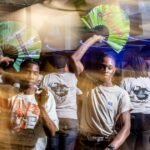U.S. Universities Can’t Innovate in Isolation (opinion)
In a paradoxical bid to “make America great again,” President Trump and congressional Republicans are pushing to restrict international research collaboration in U.S. higher education. The Department of Education is investigating Harvard University; the University of California, Berkeley; and the University of Pennsylvania for potential violations of the Higher Education Act, which requires universities to report foreign gifts and contracts valued at $250,000 or more.
Policymakers are further proposing to lower that threshold to $50,000 and require universities to obtain federal waivers before entering into contracts with “foreign countries of concern.” The administration is also seeking to prohibit Harvard from enrolling international students and placing full or partial travel bans on people from 19 countries. And after pausing student visa interviews for about a month starting in May, the administration is now scrutinizing applicants’ social media accounts to approve or deny their visas.
At a time when the global race to develop cutting-edge technologies is accelerating, the U.S. should be expanding—not constraining—its international research partnerships.
Federal demands for foreign gift reporting kicked off in 1986, after Georgetown University received donations from Arab governments to establish its Center for Contemporary Arab Studies. Policymakers worried about potential strings attached, such as influence over curricula and threats to free speech, resulting in legislation requiring universities to disclose foreign funding. Over time, however, compliance waned, and successive administrations allowed the law to fall into disuse.
That changed in 2019, when the Trump administration revived enforcement and began investigating universities for noncompliance, uncovering billions of dollars in unreported funding. The concern then, as now, was that a lack of transparency threatened academic independence and posed national security risks.
It is understandable to want to know if foreign governments are influencing American institutions. But is there good reason to think current rules are effective, or that stricter ones would be?
There is little evidence that decades of lax enforcement have led to significant harm. The Trump administration’s China Initiative, for example, sought to root out espionage in academia but instead cast a wide, indiscriminate net, leading to criminal charges against professors like Feng Tao, Anming Hu and Gang Chen based on questionable allegations. In each case, charges were ultimately dropped or the scientists were acquitted, but not before reputations were damaged and careers derailed. Of the 162 cases prosecuted by the Department of Justice under the China Initiative, only about 20 involved university researchers, and at least nine of these cases ended in dismissed charges or acquittals. The initiative illustrates how geopolitical anxiety can erode academic freedom and damage innocent collaborations for little gain.
Both the previous and current Trump administrations have scrutinized universities’ research, including on dual-use technologies such as artificial intelligence, robotics systems and laser technology, arguing that they can be used to advance foreign governments’ (particularly China’s) military objectives. But politicians too often fail to acknowledge that most applications in these fields are nonmilitary, including autonomous vacuum cleaners, industrial robots and self-driving cars. Autonomous systems have been a long-standing area of global research, much of it geared toward civilian innovation. Moreover, federal agencies, including the Department of Defense, have implicitly supported this research through funding.
While reporting can be onerous, requiring universities to obtain federal waivers to collaborate with researchers from “foreign countries of concern” is more intrusive. So too are possibly biased social media screening of foreign students and travel bans that prevent entire populations from engaging with U.S. institutions. These policies move beyond transparency into gatekeeping, forcing universities to seek permission before working with researchers from countries like China, home to more than 1.4 billion people and a global leader in scientific research. Past historical lessons on how political tensions have been allowed to erode academic freedom do not need to be relearned.
Although the U.S. Department of Education claimed to improve the process for foreign gift reporting with a new portal in the first Trump administration, it increased the amount of information for colleges to report. The reporting process, while intended to enhance transparency, imposes bureaucratic costs on institutions.
Preserving open academic environments, where innovation can thrive, is not a liability, but a strategic advantage. Still, precautions should be taken. Sensitive research should be classified by the federal government. Companies partnering with universities should set clear terms about who can access proprietary projects. People who violate classification rules or contract terms should face consequences. But the default should be freedom, not prohibition.
To keep America great, it is essential to preserve the openness and intellectual freedom that define U.S. higher education and make it the best postsecondary system in the world, at least as indicated by its dominance of international rankings, share of Nobel laureates and attractiveness to international students. Open academic environments encourage innovation, foster critical thinking and enable researchers to explore cutting-edge fields—including those vital to national competitiveness.
If the U.S. is to maintain its position as a global leader in research, it must champion academic freedom, not restrict it.
You may be interested

Man fuming after seeing photo neighbour used to sell house
new admin - Jul 29, 2025A man has slammed his neighbour for 'stealing' part of his garden to improve his chances of selling his house…

They Attack Because Higher Ed Is Strong, Not Weak (opinion)
new admin - Jul 29, 2025[ad_1] Academics are cynics. We have to be. We critique our students, our peers and ourselves. It’s how we were…

“Worst-case scenario of famine unfolding” in Gaza Strip, food security experts say
new admin - Jul 29, 2025The "worst-case scenario of famine is currently playing out in the Gaza Strip," the leading international authority on food crises…































